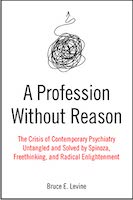How Psychologists Subvert Democratic Movements: A Talk at the 2012 Psychologists for Social Responsibility Conference
By the 1980s, as a clinical psychology graduate student, it had become apparent to me that the psychology profession was increasingly about meeting the needs of the “power structure” to maintain the status quo so as to gain social position, prestige, and other rewards for psychologists. The Backward March of Psychologists The academic psychology that […]
Voting—Transcending the Wedge Issue That Divides Democracy Activists
Many nonvoting democracy activists argue that participating in U.S. national elections only maintains the illusion of democracy, and so voting can become a wedge issue that undermines solidarity among voting and nonvoting activists on democracy battlefields beyond electoral politics.
The Revised Harm Reduction Guide to Coming Off Psychiatric Drugs: A Sane Approach to Psychiatric Drugs
Millions of people believe that psychiatric medications have saved their lives, while millions of others report that their psychiatric medications were unhelpful or made things worse. All this can result in mutual disrespect for different choices. I can think of no better antidote for this polarization than the recently revised, second edition Harm Reduction Guide […]
Antidepressants or Antiaphrodisiacs? 6 Reasons Why So-Called Antidepressants Should Be Relabeled
Should a drug that produces sexual dysfunction for the majority of users and which doubles the risk of a suicide attempt be labeled as an antidepressant? No, argues a recent Scientifica article “Relabeling the Medications We Call Antidepressants.” The article’s authors, David Antonuccio, psychologist at the Department of Psychiatry and Behavioral Sciences, University of Nevada […]
Killed by the Huffington Post, Article Now on the Newsstands in Skeptic
Now in the current issue of Skeptic, I have an article called “Depression Treatment: What Works and How We Know” (article rights owned by Skeptic but which I am allowed to republish on my web site). I thought that some of you would be interested in what happened to this article at the Huffington Post. […]
Anti-Authoritarians and Schizophrenia: Do Rebels Who Defy Treatment Do Better?
Preface: Failing in my efforts to get this article published for the general public, apparently only here can I talk about a “cool subculture of anti-authoritarians” and how the Harrow study shows medication resisters have greater recovery. While many Americans are troubled by psychiatry’s over medicating of children, and they doubt the legitimacy of some […]
How the “Brain Defect” Theory of Depression Stigmatizes Depression Sufferers
Viewing depression as a “brain defect” rather than a “character defect” is supposed to reduce the stigma of depression, according to the American Psychiatric Association, the National Alliance for the Mentally Ill, and the rest of the mental health establishment. But any defect can be stigmatizing. What if depression is the result of neither a […]
How Technology Worship Keeps Americans Ignorant about Depression Treatment
Technology is worshipped in U.S. culture, but when it comes to transforming depression and emotional suffering, is this predilection for technology justified? Technology worship means a reverence for machines, manipulations, and manuals designed to control. It also means valuing the objective and the quantifiable over the subjective and the non-quantifiable, and prizing the synthetic versus […]
How America’s Obsession With Money Deadens Us
A preoccupation with money is nothing new in our culture, but have Americans become even more “money-centric,” and does this deaden us, making us incapable of resisting injustices? A money-centric society is one in which money is at the center of virtually all thoughts, decisions, and activities. While capitalism certainly gives rise to money-centrism, any […]
Why Anti-Authoritarians are Diagnosed as Mentally Ill, and How This Helps America’s Illegitimate Authorities Stay in Charge
In my career as a psychologist, I have talked with hundreds of people previously diagnosed by other professionals with oppositional defiant disorder, attention deficit hyperactive disorder, anxiety disorder and other psychiatric illnesses, and I am struck by (1) how many of those diagnosed are essentially anti-authoritarians, and (2) how those professionals who have diagnosed them […]




